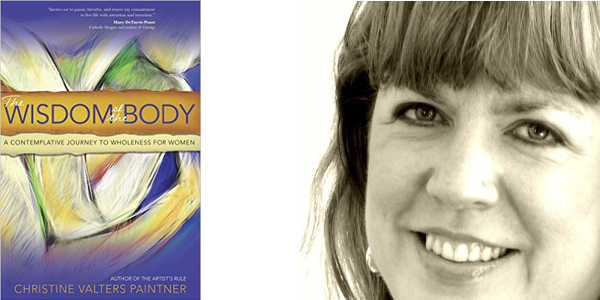Christine Valters Paintner is a Benedictine Oblate, spiritual director and retreat leader, and the author of numerous books on contemplative prayer and spiritual integration with the world. She lives in Ireland and is the self-appointed “Abbess” at AbbeyoftheArts.com. Here she answers a few fast questions about her latest book, The Wisdom of the Body: A Contemplative Journey to Wholeness for Women.
1)What inspired the book?
The inspiration was really a lifelong journey of learning to love my body. Despite my deep conviction that the incarnation means all flesh is sacred, in the past the cultural voices which hold only certain bodies as beautiful have been so strong. The contemplative path has offered me the resources I needed to see myself as whole, to cherish the joys my body brings, and to make space for the grief I have experienced.
2) If you could give this book another title, what would it be?
The Last Unexplored Wilderness. This is actually a quote from a Buddhist writer, Reginald Ray, who describes the body in this way in his book Touching Enlightenment. With my own love of the desert monks who went out to the wilderness to seek intimacy with God, this image sings to me.
3) What story or anecdote (or piece of advice) in this book most personally resonated with you in your life?
I especially love working with the ideas of the first chapter, inspired by St. Hildegard of Bingen’s idea of viriditas, which means the greening power of God. I invite readers to consider everything they do and whether it is nourishing or depleting. Will it bring about a sense of lush fullness in their lives? I regularly use this as a tool for discernment. The other key is to not revert to judgment when I do make poor choices, but to meet myself with loving kindness.
4) Did writing this book teach you anything?
I was reminded again and again of all the places I still bump into those cultural voices of disdain. It was a marvelous way to continue to practice mindfulness around how I speak to and about my body. The criticism comes in so many subtle ways.
5) If there is one person you want to reach with this book, who would that be?
I very much want to reach women who are exhausted by the endless internal criticism and are ready to find a new way, one that delights in the gift of the senses and wants to find a new way of being.
6) What is the ideal beverage to have in hand while reading your book?
A beautifully prepared cup of herbal tea, slowly and mindfully and full of love. My own preference is ginger and cinnamon, but anything that brings you alive to your senses.

